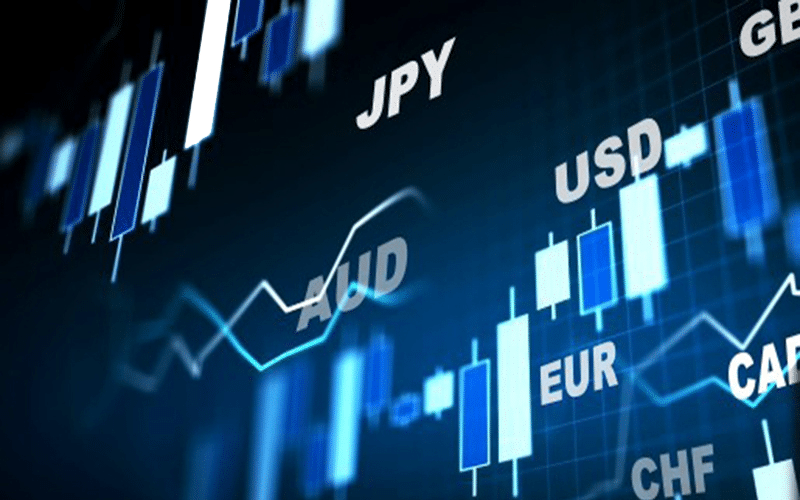Imagine you’re a globe-trotting entrepreneur, eager to expand your business ventures across borders. You’re ready to navigate the vast financial world, currency conversions standing as your gateway to success. Enter the foreign exchange market, a global stage where the world’s major players orchestrate the dance of currencies.

Image: forexezy.com
The foreign exchange market, commonly known as forex, is the largest and most liquid financial market in the world, with a daily trading volume exceeding $5 trillion. It’s a dynamic arena where currencies are bought and sold, shaping the global economy and presenting both opportunities and challenges for businesses and individuals alike. But who are the major players in this financial dance? Let’s take a closer look.
Central Banks: The Guardians of Monetary Policy
Central banks, such as the Federal Reserve in the United States and the European Central Bank, hold a pivotal role in the forex market. They are responsible for setting and implementing monetary policy, which influences interest rates and exchange rates. By managing the money supply and regulating the flow of credit, central banks guide the movements of currencies and preserve financial stability.
Commercial Banks: The Intermediaries of Exchange
Commercial banks act as intermediary institutions in the forex market, facilitating currency transactions between businesses, individuals, and other financial institutions. They provide a platform for buying and selling currencies, offering their expertise and extensive network of international correspondents. Commercial banks also play a significant role in foreign exchange risk management.
Investment Firms: Seekers of Profit in Currency Fluctuations
Investment firms, including hedge funds, mutual funds, and asset managers, actively engage in forex trading to generate profits from currency fluctuations. They use sophisticated analytical tools and leverage global investment strategies to identify opportunities in currency markets. Investment firms often hold large positions in currencies, influencing market sentiment and price action.

Image: www.youtube.com
Corporations: The Balancing Act of Import and Export
Multinational corporations participate in the forex market to manage their foreign exchange exposure and facilitate international trade. They need to convert currencies to fund their operations abroad and mitigate currency risks. Corporations play a crucial role in determining currency demand and supply, as they often enter substantial spot and forward contracts to hedge against currency fluctuations.
Retail Traders: The Active Participants from All Walks of Life
Retail traders, ranging from experienced individuals to novice investors, participate actively in the online forex market through brokers. They seek to profit from short-term currency price movements, often trading with higher leverage than institutional participants. Retail traders bring significant liquidity to the market and can influence price dynamics, particularly during periods of high volatility.
The Interplay of Participants and Market Dynamics
The interplay of these major participants in the forex market creates a dynamic and complex ecosystem. Each player has its own objectives, strategies, and risk tolerance, contributing to the formation of currency prices and the overall direction of exchange rates. The decisions made by central banks, commercial banks, investment firms, corporations, and retail traders influence market sentiment, drive currency flows, and shape the global financial landscape.
Tips for Navigating the Forex Market
If you’re venturing into the forex market, consider these key tips:
– Understand the fundamental factors that influence currency movements.
– Choose a reputable and regulated broker with a track record of reliability.
– Manage your risk carefully and avoid excessive leverage.
– Be patient and disciplined in your trading approach.
– Keep abreast of market news and analysis.
By following these expert tips, you can increase your chances of success in the thrilling yet challenging world of forex trading.
FAQs on the Forex Market
What is the difference between spot forex and forward forex?
Spot forex involves the immediate delivery of currencies, while forward forex contracts agree on the exchange of currencies at a specific date in the future at a predetermined rate.
What are the benefits of trading currencies on the forex market?
Forex trading offers potential profits from currency fluctuations, accessible 24/5, and high liquidity, providing ample opportunities for participants.
How can I learn more about forex trading?
There are numerous resources available, including online courses, books, and webinars, that can educate you about forex trading strategies and market analysis.
Major Participants In Forex Market
Conclusion
The foreign exchange market is a global platform where the world’s major players, from central banks to retail traders, participate in the exchange of currencies, shaping the global economy and providing opportunities for profit and risk management. Understanding the roles and motivations of these participants is crucial for navigating this dynamic market. Whether you’re a seasoned trader or an aspiring forex enthusiast, broadening your knowledge and staying informed will empower you to make informed decisions and unlock the potential of this financial arena.
If you find this topic intriguing and desire to dive deeper into the intricacies of the forex market, we encourage you to explore our comprehensive online resources, attend industry events, and engage with experienced forex professionals. The world of currency trading awaits your curious exploration!






